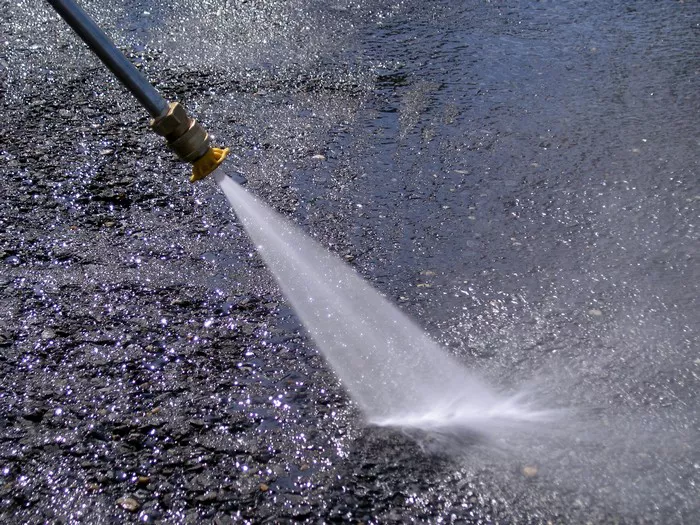In the realm of pressure washing and chemical application, downstream injectors play a crucial role in delivering precise amounts of cleaning agents and solutions. Whether you’re a professional cleaner, contractor, or DIY enthusiast, understanding the functionality and optimization of downstream injectors can significantly enhance your workflow efficiency and overall results. In this comprehensive guide, we’ll delve into everything you need to know about downstream injectors, from their operation principles to practical tips for maximizing their performance.
Understanding Downstream Injectors: A Primer
Downstream injectors, also known as chemical injectors or soap injectors, are vital components in pressure washing systems. They are designed to introduce cleaning chemicals, detergents, or other solutions into the water stream after the pump, thereby allowing users to apply these substances effectively during pressure washing tasks.
How Downstream Injectors Work
Downstream injectors operate on a simple yet effective principle. As water flows through the pressure washer pump, it creates suction, which is utilized to draw cleaning agents from an external container or reservoir. These agents are then mixed with the water stream in precise proportions, typically through an adjustable metering valve, before being expelled through the pressure washer wand.
Types of Downstream Injectors
There are primarily two types of downstream injectors commonly used in pressure washing systems:
1. Chemical Injectors: These injectors draw cleaning chemicals or detergents from an external container and mix them with the water stream. They are suitable for a wide range of cleaning applications, from removing mildew and mold to degreasing surfaces.
2. Soap Injectors: Soap injectors, as the name suggests, are specifically designed for dispensing soap or foaming agents during pressure washing tasks. They are ideal for applications where a thick, clinging foam is desired, such as vehicle washing or pre-treating heavily soiled surfaces.
Optimizing Downstream Injector Performance
To maximize the efficiency and performance of downstream injectors, consider the following tips:
1. Proper Dilution Ratios: Ensure that you are using the correct dilution ratios for the cleaning agents or detergents being applied. Refer to manufacturer guidelines or conduct tests to determine the optimal ratio for your specific needs.
2. Adjustable Metering Valve: Take advantage of the adjustable metering valve on the downstream injector to fine-tune the concentration of the cleaning solution. This allows for precise control over the amount of chemical being injected into the water stream.
3. Regular Maintenance: Keep the downstream injector clean and free from debris or buildup that could impede its performance. Periodically flush the system with clean water and inspect for any signs of wear or damage.
4. Compatible Chemicals: Use cleaning agents that are compatible with downstream injectors to prevent clogging or damage to the system. Avoid using abrasive or corrosive chemicals that may cause deterioration over time.
5. Proper Technique: Employ proper pressure washing techniques, including maintaining the correct distance between the nozzle and the surface being cleaned, to ensure uniform application of the cleaning solution.
Conclusion
Downstream injectors are indispensable tools for achieving optimal results in pressure washing applications. By understanding their operation principles and implementing best practices for optimization, users can enhance efficiency, maximize performance, and achieve superior cleaning outcomes. With proper maintenance and attention to detail, downstream injectors can continue to deliver reliable service for a wide range of cleaning tasks.
FAQs
Q1: Can I use downstream injectors with any pressure washer?
A1: Downstream injectors are compatible with most pressure washers, regardless of brand or model. However, it’s essential to ensure that the injector is compatible with the chemicals or detergents being used and that the pressure washer has adequate flow and pressure capabilities to operate the injector effectively.
Q2: How do I troubleshoot issues with my downstream injector?
A2: If you encounter problems such as inconsistent chemical injection or poor foam generation, start by checking for clogs or obstructions in the injector, metering valve, or chemical lines. Ensure that the dilution ratio is correct, and the cleaning agents being used are suitable for downstream injection. If issues persist, consult the manufacturer’s troubleshooting guide or seek professional assistance.
Q3: Can downstream injectors be used for applying fertilizers or pesticides?
A3: While downstream injectors are primarily designed for dispensing cleaning chemicals and detergents, they can also be used for applying certain fertilizers or pesticides in agricultural or landscaping applications. However, it’s essential to use injectors specifically designed for this purpose and follow all safety and regulatory guidelines regarding the use of chemicals in outdoor environments. Always consult with experts or regulatory authorities to ensure proper usage and compliance.

